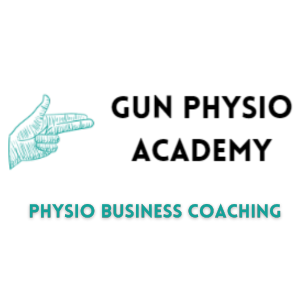The words “don’t follow a recipe” have been repeated over and over when training new graduates.
Rightly so, we are better than this.
Providing bespoke care for patients at an n=1 level is the pinnacle of practice.
It’s a great, idealistic place for our profession to sit and one that constantly raises the bar.
But where does that leave our new graduates?
Dinner date
Imagine for a moment that you are about to have a date over for dinner.
You have never ever cooked before.
All you have are some basic ingredients.
And some utensils which you are somewhat familiar with.
But you’re not allowed to follow a recipe.
You have to figure everything out, on the spot, in front of your date.
And you have to make it look as though you have it all under control the entire time.
This is essentially what we are asking therapists to do on graduating.
To front up to clients, having often never treated or seen their injury before.
And just kind of ‘fake-it’ until they ‘make-it’.
We are asking them to cook from scratch and I think it’s part of a serious problem.
Thirty eight percent of physiotherapists leaving our profession complain of burnout.
What could burn you out faster than the anxiety of not knowing what you are doing?
Than carrying this imposter syndrome on your back from day 1?
I’m NOT saying let’s all embrace recipe based care.
I’m saying if you have never learnt how to cook, don’t start with linguine from scratch.
We need to take a fresh look at how we are training, supporting and developing physiotherapists.
Store bought pasta
There is a reason many of us buy pasta from the supermarket.
For starters, it costs about $3 vs making it ourselves which would take an hour – plus the time it takes to clean up :((
It’s actually more than good enough.
And when it comes to therapy: there has always been a range of store-bought options available.
To align with best evidence clinicians need to know what already exists on the shelf.
Before they go about trying to write their own cookbooks.
Most clinicians (not just training new graduates) don’t actually have this encyclopedia of knowledge.
In the post-Covid world, most private physiotherapists haven’t done a lot of post-graduate courses.
And it’s left us in a bit of an awkward place.
It has opened the door for more therapists to decide ‘what I do’ is good enough.
And never actually ask real questions of their practice.
They are aiming for an n=1 approach which is amicable.
But they don’t actually understand the n=100 solutions that are available.
The essence of evidence based practice; what I call knowing the ‘recipes’.
Private physiotherapists need to actually know what the best available evidence says.
And they don’t.
Training new graduates these days
It is very clear from training young therapists that they are not always able to follow systematic processes.
They have not grasped a lot of key concepts throughout their studies:
Basics like taping for patellofemoral pain Understanding red flags in the context of lower back pain The ability to diagnose problems such as a frozen shoulder from a clinical examination
These are fundamental skills for both diagnosis and treatment planning.
These are very common conditions that present within your first month in private practice.
Graduates often lack conviction in their diagnostic abilities.
Thus they struggle to produce well reasoned treatments.
Without these key concepts down pat they have little hope of being effective.
Graduates often lack the ‘culinary’ skills of our profession.
Yet they are stuck fumbling their way through more complex treatment paradigms.
A lot of young physiotherapists end up lost.
They seek refuge in binary places such as:
- Being completely exercise focussed (gym predominantly) – at the expense of gaining a therapeutic alliance.
- Avoiding all forms of manual therapy – at the expense of patient preferences.
- Not wanting to be ‘salesy’ – but forever losing clients due to being ineffective.
They struggle with the basics.
There is a lot of talk-the-talk, but when it comes down to it…
Very few are able to ‘walk-the-walk’.
Unfortunately, this can lead them to be quite dismissive of the practice itself.
And from here on it can be a slippery slope to keep them engaged professionally.
This is a big contributor to job dissatisfaction.
When one lacks the core ‘skills‘ a role requires, it creates anxiety.
.
Newton’s third law
“Every action has a reaction.“
The push towards evidence based practice (EBP) has lead to something far from it.
Combined with the biopsychosocial movement.
With a huge emphasis on the person and an oft dismissive attitude towards the ‘bio’ side.
This has lead us to quite a bizarre place.
Below is a classic description of EBP, from Sackett et al. (1996).

The theory here is to embrace all 3 perspectives
- Best evidence
- Clinical experience
- Patient preference
But a lot of people are not truly practicing from a place of ‘best evidence’.
They are just embracing the lower two circles.
Combining clinical experience and patient preference’s into a bastardised version of EBP.
Spitting out phrases like ‘there is no evidence for anything’… so I’m just going to do [insert shoddy treatment].
When people find their job too difficult they will make it easier for themselves.
The so called ‘experts’
Part of the problem is clinical ‘experts’ teaching our undergraduate classes.
I find a lot of these experts live in a false reality – many of them have only spent a few years working at the coalface.
Usually they have left clinical practice because they weren’t stimulated enough.
This is through no fault of their own.
A lot of people in academia are incredibly intelligent.
And highly analytical.
They are undoubtably brilliant at what they do.
I congratulate anyone who has done a PhD or worked towards one.
But they are unfortunately guilty of one thing.
They are often making simple things complicated.
When people find their job too easy they will make it more complicated.
The real world
The majority of challenges we face as therapists come down to:
- Managing different personalities
- Managing expectations
- Negotiating various constraints – such as time, money and health literacy.
The day-to-day challenges within a clinic seldom require an academic level of thought.
And this tends to push a lot of analytical people ‘up the chain’.
Their curiosity leads them towards research and into the heart of academic work.
Often a by-product of this involves teaching.
But the two skills are actually quite different.
Being a good researcher, understanding complex data sets and analytical processes.
Vs
Being able to explain the above in simple terms.
A day in the life of an academic
Academics will usually start their day deep inside their latest research project(s).
They pop into the clinic for a couple of sessions a week and see a very small caseload of niche clientele.
They often extrapolate what they see and do in the clinic to what everyone should be seeing and doing.
And universities provide them this platform.
But these people often only spend about 10-15 hours per week treating in clinic.
They see a caseload of highly consultative-type appointments.
Their caseloads involve complex assessments.
Short bursts of therapy.
And then discharge to community based therapists.
Most also onward refer anyone who doesn’t specifically fit in to their niche.
Don’t get me wrong – these people are great at what they do clinically.
They are at the pinnacle of professional practice.
This is not a place that many ever get to.
And they really aren’t doing what I do, or what you do.
There is a big gap between what is being taught to physiotherapists at an explanatory level (university) and what is expected of physiotherapists on a pragmatic level (business).
The generalist
The majority of clinicians are actually generalists.
This is especially true in a world of AHPRA regulations.
One can’t even say they have a ‘special interest’, unless they have an APA title to go with it.
APA titled therapists are right to call themselves experts – they have done the work.
But the gap between what an ‘expert’ clinician does and training new graduates is chalk and cheese.
Here-in lies the new graduates training problem.
A generalist clinician will never meet the clinical standards of a specialist.
They have spent their ENTIRE LIFE working within their niche.
A great example of this was when I undertook my post-graduate training in 2014.
We had a choice for our physiology assignment.
Bone, tendon or muscle.
I chose tendon.
We had a world-renowned expert taking us through this topic.
The majority of people who did the tendon assignment failed.
Or received extremely poor results. (For the record, I got a ‘C’)
This expert felt 80% of people were really not up to scratch with their knowledge.
To be fair, he has done the work to set the benchmark and is well within his rights to want to set a high bar.
The university simply decided to bump everyone’s marks up.
Normalise them relative to the ‘easier’ assignments.
How can their be such a chasm here?
This group of students had on average 10 years clinical experience.
They represented a cohort who were actively engaging in post-graduate pursuits.
Most had done over 100 hours of professional development courses throughout their careers.
They were not an average group of physio’s.
This was the next generation of clinical leads.
And if that is the level of discrepancy within our profession at the top level.
There is no wonder we have problems at the base.
Who is responsible for training new graduates?
Nowadays physiotherapy small business owners are expected to upskill new graduates.
This is true of any profession.
But I question whether the foundations for good clinical practice are being laid.
Whether the training at university is adequately providing said platform.
Small business owners are forced to become the teachers.
In a highly fragmented profession, is this realistic?
Students spend upwards of 90K on some of these degrees.
They are spending up to 6 years of their life at university in some pathways.

They are paying to become professionals – with a clear end goal in mind.
And for some reason it’s actually just not happening.
Is it really our job as small business owners to burst this bubble??
To sit them down and explain that in spite of their years at university and their astronomical tuition fees, they really don’t have a lot of applicable clinical knowledge…
Yet.
It is still going to take them years, if not decades, to get to the point where they can call themselves accomplished clinicians.
And the truth is most never get there.
Our profession sees a drop out rate of between 55-60% within the first 10 years.
The allied health award states that a Grade 3 staff member would usually have >7 years experience.
There really aren’t that many people left by the time we start looking for leaders.
My new graduates training program
We can do better than leave practitioners up the proverbial creek here.
There is room to embrace clearer guidelines
Equip physiotherapists with more robust solutions.
Rather than simply the ability to identify problems.
There is an advantage to using simpler structures early on in a practitioners career.
Like store-bought pasta.
To help them gain a foothold in the profession and to see things actually working in front of their own eyes.
And then WEAN off these to more robust clinical reasoning frameworks.
As these skills develop.
Perhaps we need to look deeper at our undergraduate education model.
The same model that is also asking private practices to provide student education – for $50 per day.
Without any clinical experience one can’t truly practice evidence based medicine.
Graduating therapists deserve better foundations.
And a clearer plan for their professional development, beyond the classroom.
Small business is hard enough without the burden of carrying the profession itself.





